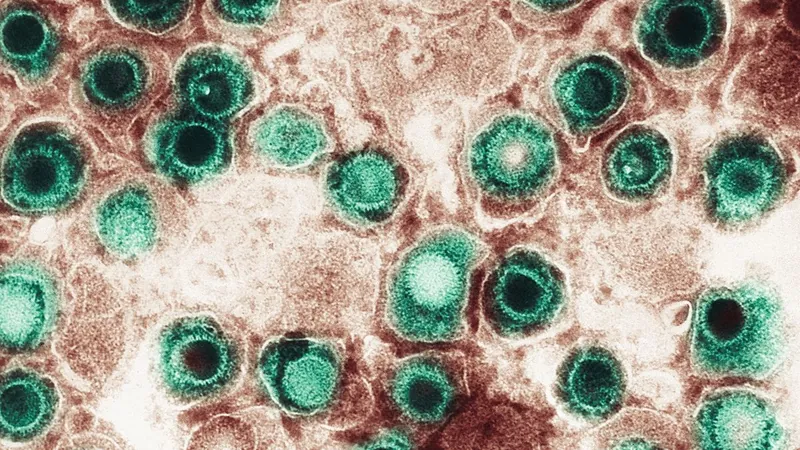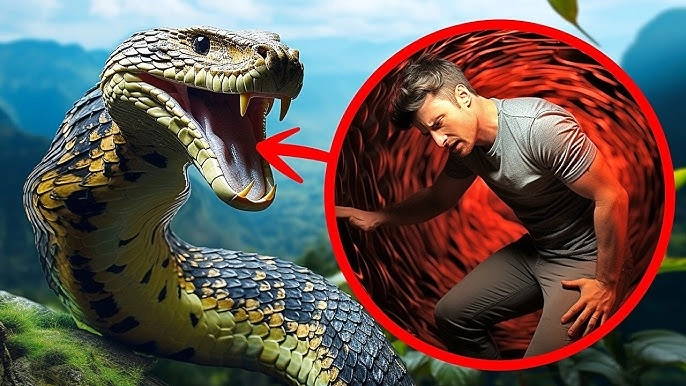
Unlocking the Mystery: Could Dormant Herpes Viruses Trigger Dementia After Concussions?
2025-01-08
Author: Jia
A groundbreaking study has shed light on an alarming connection between concussions, dormant herpes viruses, and dementia, suggesting that inflammation caused by brain injuries could reactivate these viruses, leading to severe cognitive decline.
Brain injuries, particularly concussions, have long been associated with an increased risk of dementia. The more head traumas a person endures, the greater the danger becomes. Researchers are delving into the brain's transformations following injuries, searching for factors that could lead to debilitating conditions such as Alzheimer’s disease or chronic traumatic encephalopathy (CTE), which is increasingly recognized in athletes participating in high-impact sports.
A prime suspect in this investigation is the herpes simplex virus 1 (HSV-1), commonly known for causing cold sores. This virus, along with other members of the herpesvirus family, possesses the stealthy ability to remain dormant within the human body for years. Dana Cairns, a lead researcher and postdoctoral fellow at Tufts University, revealed that evidence suggests HSV-1 can infiltrate the brain and lurk there, waiting for the right moment to reactivate.
This latest research, published in Science Advances, marks a significant leap forward in understanding how physical brain injuries could awaken these dormant viruses. Dr. Gorazd Stokin, a neuroscience expert who was not part of the study, highlighted that previous work had primarily focused on infection-induced inflammation, making this link to physical trauma particularly noteworthy.
Researchers employed miniature lab-grown brain models to conduct their experiments, enabling them to mimic the effects of concussions and severe brain injuries in a controlled environment. Through intricate methods, they managed to induce inflammation in these models, triggering the reactivation of HSV-1 and initiating dementia-like changes, including an abnormal accumulation of proteins.
The experiments revealed a stark contrast in outcomes between infected and non-infected models. While the severe injury led to cell death, the concussion model exhibited a gradual worsening of dementia-related alterations with repeated injury. This finding aligns with medical observations that individuals who sustain multiple concussions often experience more pronounced neurodegeneration.
To combat this cycle, the research team hinted that targeting inflammation post-injury might play a crucial role in preventing the reactivation of HSV-1—potentially staving off the devastating effects of dementia. Stokin emphasized the need for further studies in animal models to validate these findings and discover effective interventions.
As the scientific community continues to unravel the ties between these herpes viruses and dementia, the implications for athletes and individuals prone to brain injuries are monumental. New strategies to manage or inhibit herpes reactivation could herald a new era in brain health, potentially protecting countless lives from the shadows of cognitive decline.
Stay tuned as researchers press on with innovative approaches, seeking to unravel this complex enigma that intertwines viral infection with one of society's gravest health challenges: dementia.


 Brasil (PT)
Brasil (PT)
 Canada (EN)
Canada (EN)
 Chile (ES)
Chile (ES)
 Česko (CS)
Česko (CS)
 대한민국 (KO)
대한민국 (KO)
 España (ES)
España (ES)
 France (FR)
France (FR)
 Hong Kong (EN)
Hong Kong (EN)
 Italia (IT)
Italia (IT)
 日本 (JA)
日本 (JA)
 Magyarország (HU)
Magyarország (HU)
 Norge (NO)
Norge (NO)
 Polska (PL)
Polska (PL)
 Schweiz (DE)
Schweiz (DE)
 Singapore (EN)
Singapore (EN)
 Sverige (SV)
Sverige (SV)
 Suomi (FI)
Suomi (FI)
 Türkiye (TR)
Türkiye (TR)
 الإمارات العربية المتحدة (AR)
الإمارات العربية المتحدة (AR)